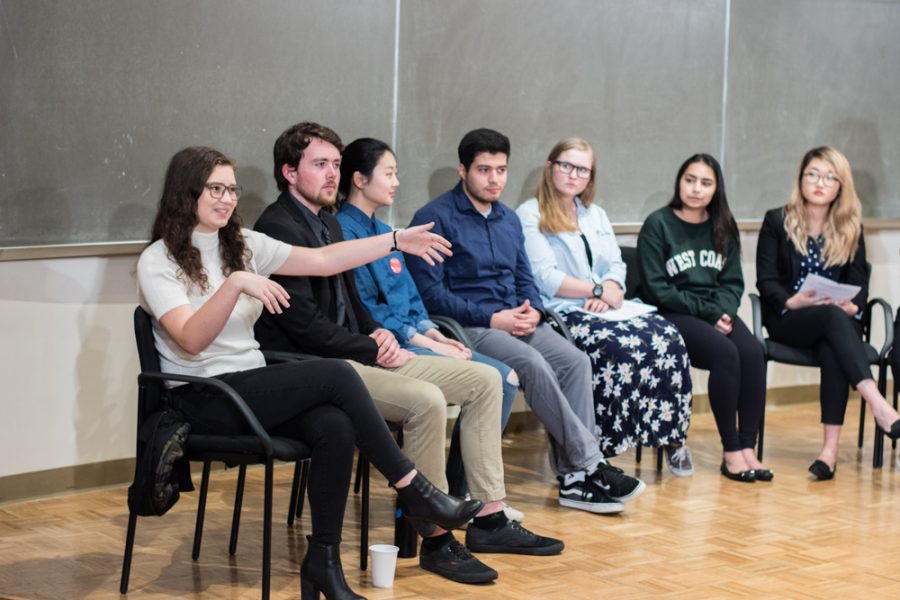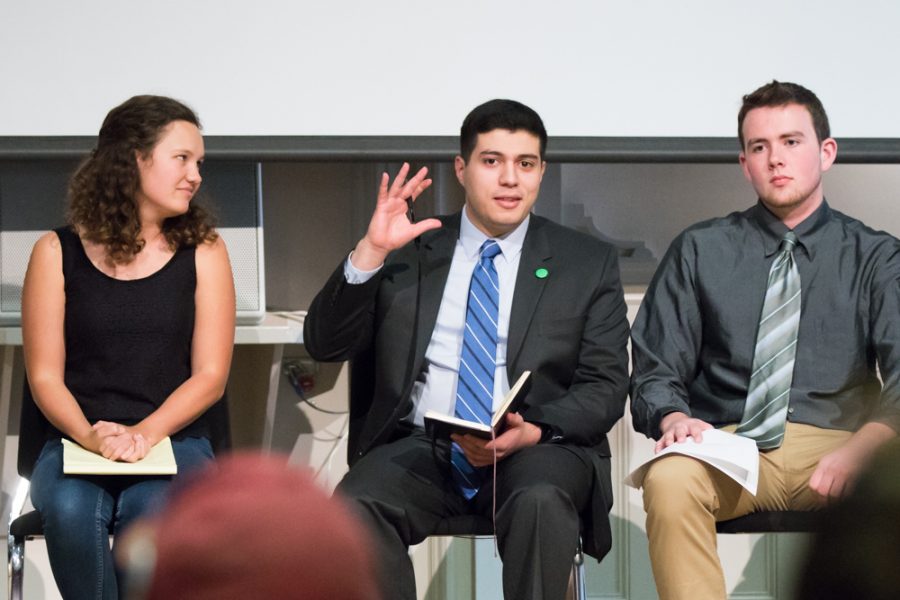In 2012, Whitman changed the process for addressing sexual misconduct in order to reflect the protections guaranteed under Title IX. To educate students about these changes and the way that Title IX is implemented at Whitman, the Associated Students of Whitman College held a Know Your IX panel last Wednesday, April 23.

Title IX is the primary federal policy that shapes how college campuses respond to cases of sexual misconduct, including rape. However, it is up to individual colleges to adopt sexual misconduct policies and investigation processes that comply with Title IX. Associate Dean of Students and Title IX Administrator Clare Carson, Academic Resource Center Director and Title IX Investigator Juli Dunn and Associate Dean of Students and Sexual Misconduct Prevention Coordinator Barbara Maxwell answered student questions about Title IX and its implementation on Whitman’s campus. Carson, Maxwell and Dunn clarified the process a student would go through if he or she came forward with a sexual misconduct complaint.
Sophomore Shireen Nori, the ASWC special initiatives director, organized the event. Nori explained how important the Title IX Panel was.
“There’s a need for information to be spread about how students can protect themselves and about the rights that they have,” said Nori. “I want people to know that there are the steps that you can take …. If something happened to you, there are people who are willing to fight for you and help you through it.”
Students are educated about sexual misconduct through the Green Dot program during orientation and through other events and initiatives spearheaded by clubs like All Students for Consent and Feminists Advocating Change and Empowerment. However, Title IX has not been the focus of previous educational events on campus. In the fall, ASC and FACE put on a panel where students and staff shared stories about sexual assault on campus and discussed Whitman’s sexual misconduct policy. The Title IX panel was a follow-up to this event.
Maxwell further emphasized the importance of focusing on Whitman’s sexual misconduct policy and Title IX.
“The [sexual misconduct] policy has not changed,” Maxwell explained, “but the process for how those cases are handled has changed. That’s what I’ve realized recently that students are unaware of.”
Carson explained the changes that have taken place.
“We’ve switched from a hearing model to an investigation model,” said Carson. “We do a more extensive investigation where we look at all the statements and interview all witnesses and accept documentation of evidence to try to come up with a finding …. The hearing model was a disincentive for people coming forward …. The onus used to be on the complainant to try to convince the panel that there was wrongdoing.”

As the Title IX administrator, Carson’s role is to ensure that the investigation into cases of sexual harassment is in accordance with Title IX.
“That means I oversee the process [to ensure that] it is a fair, impartial and thorough investigation, and that the process is prompt, reliable and equitable,” said Carson. “And that the sanctions end the harassment and prevent it from occurring and address damage that might have been done to an individual.”
Part of ensuring that individuals are treated without discrimination through the process is providing support before, during and after any investigation. Maxwell acts as an adviser for students who come forward with complaints.
“I’m an advocate for students, male or female, who need help understanding what the resources are both on campus [and in] the community,” said Maxwell. “By being the adviser, my primary job is … to make sure they understand the process as it moves from step to step. It’s also just to be a support system for them, so they don’t feel like they’re having to go through it all by themselves.”
Carson and Maxwell both acknowledged that educating the campus about Title IX and Whitman’s sexual misconduct policy is a continual process. Carson has given presentations to individual faculty departments about the ways in which Title IX affects Whitman’s response to cases of sexual misconduct.
Maxwell and Carson stressed how important it was to inform new students about Title IX, especially as changes to policy and the investigation process continue to be made.








